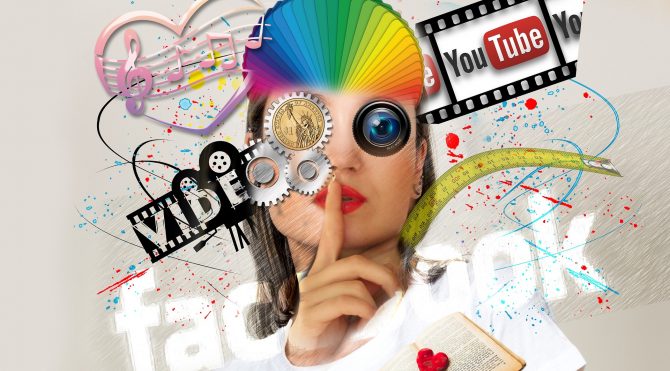Our entertainment has come a long way since people enjoyed themselves in real time and live. To visit certain places, people needed to get going and physically bring themselves to them. Theater performances were watched from the auditorium, galleries, or balconies. Movies people viewed in cinemas or on video players at home, having gone to the Blockbuster beforehand to choose a cassette they fancied. Music was listened to on live concerts or on tapes or CDs purchased in stores. To root for their favorite football team, fans used to buy tickets and cheer loudly on stadiums. Books were read in libraries and brought home from book stores.

While none of these types of entertainment has been canceled, each of them has acquired a new, virtual dimension with the birth of the internet. Participating in all these activities does not require our physical presence anymore. We can be miles away from the place where the event grabbing our attention is occurring and still have firsthand experience of it. The nature of all our usual merrymaking has drastically changed in recent years and is expected to change still further, almost beyond recognition in years to come.
Take the most popular type of our entertainment – movies. We still, obviously, watch movies in the cinema and at home, but we do watching differently now. Not long ago, we had a TV schedule to organize our day around. If a particular movie or TV show was on air, say, at 7 pm, we had to hurry home from work to watch it, since coming later than the scheduled time would create gaps in our knowledge of the storyline and would seriously damage our experience. If we were home irredeemably late, our only hope was to arrive on time some other day, when the movie was aired again.
The internet and new technological developments are now sparing us this agony. DVR passes the control over movies and shows over to us. We can easily rewind the movie that is presently on air, skip commercials, and catch any dialogue we missed or enjoyed so much that we want to savor it one more time. If a movie is airing while we are not at home, we stopped worrying about missing it. The DVR technology enables us to record the movie or show we want to see and then to watch them at our convenience.
Another technology, VPN, allows us to see any movie streamed online. The emergence of movie streaming companies has changed our viewing experience even more drastically, since we can watch them on the Internet. Such companies as Netflix, iTunes, and Amazon movies stream movies to our computers or network media players. When we click to play a movie or show, we begin to stream media from these websites to our computers in real time. The only problem with these movie streaming companies is that they like to divide viewers geographically, compiling different libraries of movies to people living in different regions.
To access every library of any of these companies, many of us use the Virtual Private Network allowing us to watch movies privately without revealing our geographical location. Apart from this (avoidable) restriction, the movie streaming companies are pure joy, since they allow us to watch as many movies in a row as we wish. There are really few people among us nowadays who have not been guilty of binge-watching, spending their weekends viewing movie after movie non-stop. The difference between our former dependence of TV schedules and our now total control over our watching experience cannot be more pronounced, of course.
Even when we go to watch a movie in a cinema and are not given so much freedom experienced with movie streaming companies, we still experience movies differently from how we experienced them in the past. Popular 3-dimensioanl movies enhance the illusion of depth perception, almost making us participants in the event we are watching on the screen. With 3-D movies, we feel as if waves are physically rolling under our feet, birds are flapping their wings right above our heads, and weapons are clicking from all sides, when we are watching a gun fight, the depth of sensations entirely unknown to us in traditional 2-D movies. Our real-life experience of the fictional world is made even more palpable with virtual reality headset, zero-gravity chair, and headphones available now in many cinemas. These devices give us an interactive look at people and objects on the screen, allowing us to experience them at every angle.
Listening to music has also changed with the advent of the internet. Fewer and fewer people now go to Rough Trade West or Waterloo Records to buy vinyl records or CDs and listen to the music recorded on them, though the jury is still out on what record music sounds better. With the wide variety of music download sites and applications available now to us, we are becoming used to download the tunes we like and create our playlists. Downloadable music is usually free and of any genre and can thus suit the most exquisite taste of any melomaniac. Those of us who, together with tunes, enjoy the visuality of musical clips, YouTube channels offer a bottomless arsenal of musical videos, also free of charge.
These are surely not the only ways of how the internet has changed our entertainment. It has played a significant role in other areas of our leisure activities as well. Thanks to the internet, we have generally started to view, consume, and receive entertainment totally differently and will continue seeing it evolve through many unpredictable, exciting stages.
















